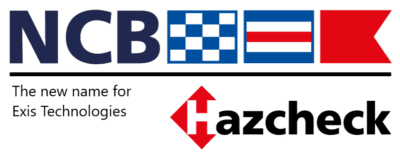
- E-LEARNING
NCB Hazcheck and parent company NCB offer a range of e-learning courses for the transport industry supported by industry bodies including TT Club and ICHCA. Buy online below. More Info
DANGEROUS GOODS TRANSPORT
Online mandatory training for shore side staff
DANGEROUS GOODS FUNCTION SPECIFIC
Online training tailored to specific shore side roles.
Container Specific
Online training tailored to specific type of containers
- Compliance Solutions
Hazcheck software assists with the compliance of dangerous cargo with the IMDG Code, 49CFR, and other regulations.
Our software is used to validate the transport of over 80% of global maritime dangerous cargo. More InfoHazcheck Search
Dangerous Goods Substance Lookup and Validation tools (IMDG, 49CFR, ADR and more)
Hazcheck AI
AI driven tools for automated efficiency and compliance
Hazcheck Validate
Check your dangerous cargo compliance and validation against regulations.
Hazcheck for Developers
Integrate Hazcheck into your existing booking systems and cargo platforms
- Cargo Screening
Hazcheck, award winning cargo screening solutions to detect misdeclared, undeclared, and other cargo.
Cargo Screening Software (SaaS)
Misdeclared and Undeclared Cargo Screening
WSC Cargo Safety Program
World Shipping Council - Cargo Screening and Inspections initiative
- Resources & Support
NCB and Hazcheck information, insights, news, and resources.
News & Insights
Latest news and information regarding NCB, Hazcheck, regulations, and services
Company
NCB Hazcheck Limited, the Technology Company of NCB (National Cargo Bureau)
Contact Us
For Hazcheck Products and Services, contact Hazcheck, for NCB, Cargo Services and questions, please contact NCB, links are below.







